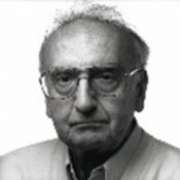|
Biografie Miodrag Pavloviæ
Miodrag Pavloviæ (Serbian Cyrillic: Миодраг Павловић; listen (help·info)) was born on 28 November 1928 in Novi Sad, Kingdom of Serbs, Croats and Slovenes. He went to school and university in Belgrade, where he studied medicine from 1947 until 1954, learned foreign languages, and wrote his first volume of poetry, 87 Poems. It appeared in 1952, the year the Yugoslav authorities, responding to a public address by the Croatian writer Miroslav Krleza, allowed more freedom of expression in politics and the arts.
In 1960 Pavlovic was appointed director of drama at the People’s Theatre in Belgrade. He also worked for twenty years as editor for the leading publishing house of Prosveta.
A theme occupying Pavlovic and many other intellectuals in the former Yugoslavia, Romania, Bulgaria, Macedonia, Greece and Albania, is the continuity between the ancient peoples of the Balkans and their modern-day descendants. In Pavlovic’s work as well as in that of the Macedonian poet Bogomil Gyuzel or the Albanian writer Ismail Kadare, there are frequent references to the ancient and medieval past. Among Pavlovic’s historical poems are ‘Odisej na Kirkinom ostrvu’ (‘Odysseus on Circe’s Island’), ‘Eleuzijske seni’ (‘Elysian Shades’), ‘Vasilije II Bugaroubica’ (‘Vasily II Bugaroctone’) and ‘Kosovo’.
These poems are often allegorical in nature, referring in fact to our own times, with their tales of manipulation, deceit and, especially, fear. Written directly in the present are such poems as ‘Prisoner’ (untitled in the Serbian original), ‘Requiem’, ‘Strah’ (‘Fear’), ‘Pod zemlyom’ (‘Under the Ground’) and ‘Kavge’ (‘Feud’).
Pavlovic was twice nominated for the Nobel Literature Prize, and has received many literary prizes and honours in Yugoslavia and abroad. His work has been widely translated. He currently lives alternately in Tuttlingen (Germany) and Belgrade.
In 1985 he was elected as a member of Serbian Academy of Sciences and Arts in the Department of Language and Literature.
|




